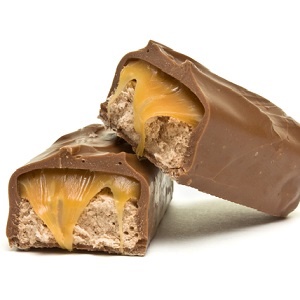
The results suggest that specialty flavanol-rich cocoa products could be increasingly targeted at the ‘baby boomers’ (people born between 1946 and 1964), an age-group that forms the biggest age-bracket of the population in both the US and Europe.
Of particular concern to ageing populations is heart disease, which accounts for over 50 percent of all deaths in Europe annually. Heart problems are also a major health concern in South Africa.
“Ageing is typically associated with deterioration in vessel health, specifically related to function of the critical inner lining, or endothelium,” explained co-author Naomi Fisher, MD, from Harvard Medical School. “Our findings demonstrate that consumption of this flavanol-rich cocoa can improve the function of blood vessels in a healthy elderly population.”
The research study
Fisher and her co-researcher, Norman Hollenberg, tested the hypothesis that the cardiovascular response to cocoa flavanols occurred vie a mechanism involving activation of nitric oxide (NO) production by the enzyme, nitric oxide synthase (NOS). NO has been shown to act upon smooth muscle in blood vessels and increase blood flow (vasodilation).
To test the hypothesis, 34 healthy subjects who were not taking any medications and had normal cardiovascular function were recruited. The subjects were divided into two groups depending on age (younger or older than 50). All subjects were required to drink a daily flavanol-rich cocoa beverage (920ml) supplied by confectionary giant, Mars (Cocoapro).
The flavanol content of the drink was quantified as 9,2mg epicatechin, 10,7mg catechins, and 69,3mg of flavanol oligomers, per 100ml. The drink also contained 6g carbohydrates, 5g protein, 17,5mg magnesium, 58mg sodium, and had an energy value of 53kcal per 100ml.
The researchers also created a subgroup of 21 subjects (12 young) to receive an intravenous infusion of N-nitro-L-arginine-methyl-ester (L-NAME) a chemical that inhibits the action of nitric oxide synthase.
At the end of the supplementation period (four to six days) the researchers found that the subjects not given the L-NAME infusion had significant improvements in vessel function following the consumption of flavanol-rich cocoa.
Dilation of the blood vessels increased in both groups, but most strikingly in the older subjects, with an increase of 5,9 microlitres compared to 3,2 microlitres in the young.
For subjects given the L-NAME infusion, the improvements observed in cardiovascular markers in both age groups were reversed, with reductions in dilation of 2,5 in the young and 3,9 microlitres in the older subjects.
Effect on NOS activity
These results, said the researchers, show that the flavanols in the cocoa have a direct affect on NOS activity, which is then inhibited by administration of the L-NAME infusion.
The results also demonstrates, said Fisher and Hollenberg, that dysfunction in the endothelium that occurs naturally in ageing is reversible, which in itself points to “functional and not structural causes”.
“Flavanol-rich cocoa has been demonstrated to enhance measures of endothelial function in healthy elderly individuals. Larger-scale trials and measures in older individuals with disease will help determine potential extent of its benefits,” concluded the researchers in the Journal of Hypertension (Vol. 24, pp. 1575-1580).
No effect was observed on blood pressure, disagreeing with results from several other studies. This discrepancy, however, could be due to different cocoa formulations, longer intervention times, and the focus in other studies on hypertensive subjects, said Fisher and Hollenberg.
'Intriguing' findings
In an accompanying editorial (Journal of Hypertension, Vol. 24, pp. 1471-1474), Claudio Ferri, Davide Grassi and Guido Grassi from the Universities of Aquila and Milan in Italy, called the findings “intriguing”.
“Should the fingings obtained by Fisher and Hollenberg be confirmed in large-scale trials, this would suggest that cocoa is a healthy food capable of improving endothelial cell function and protecting the vasculature at all ages, but particularly in individuals aged over 50,” they said.
However, Ferri, Grassi and Grassi cautioned: “The flavanol-rich cocoa products used in experimental studies, and even present in some commercially available flavanol-rich chocolate bars that have been tested in controlled short-lasting studies, should not be confused with a number of commercially available snacks that contains many calories but are low in natural cocoa and flavanols.”
The results were welcomed by Harold Schmitz, PhD, chief science officer at Mars, who said that the results were “impressive.”
“For the past 15 years, Mars researchers and scientists around the world have been studying cocoa flavanols. This latest research provides additional support for the concept that cocoa flavanols could help reduce the risk, or even offer future treatment potential, for cardiovascular diseases including heart disease and stroke.” - (Decision News Media, August 2006)
Read more:




 Publications
Publications
 Partners
Partners














